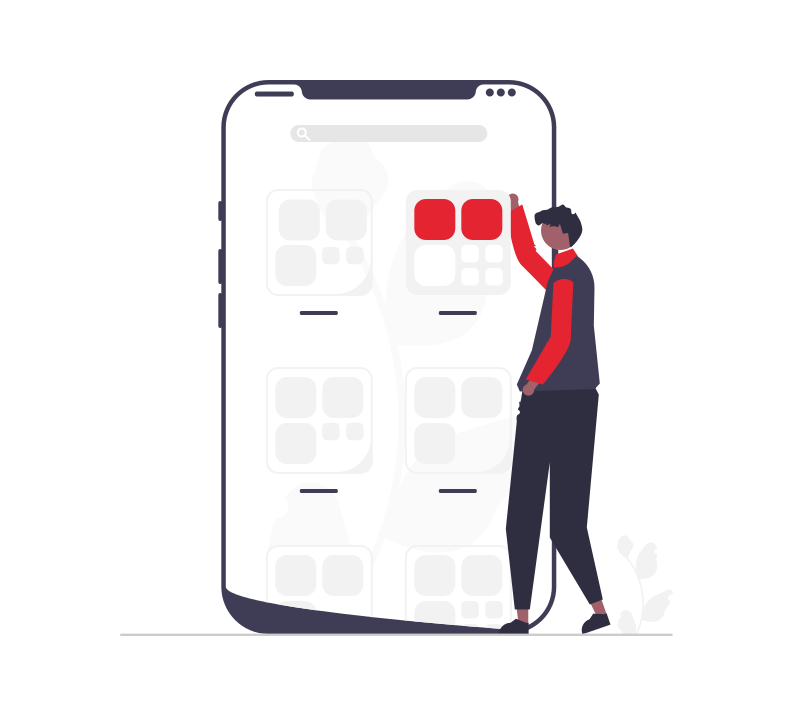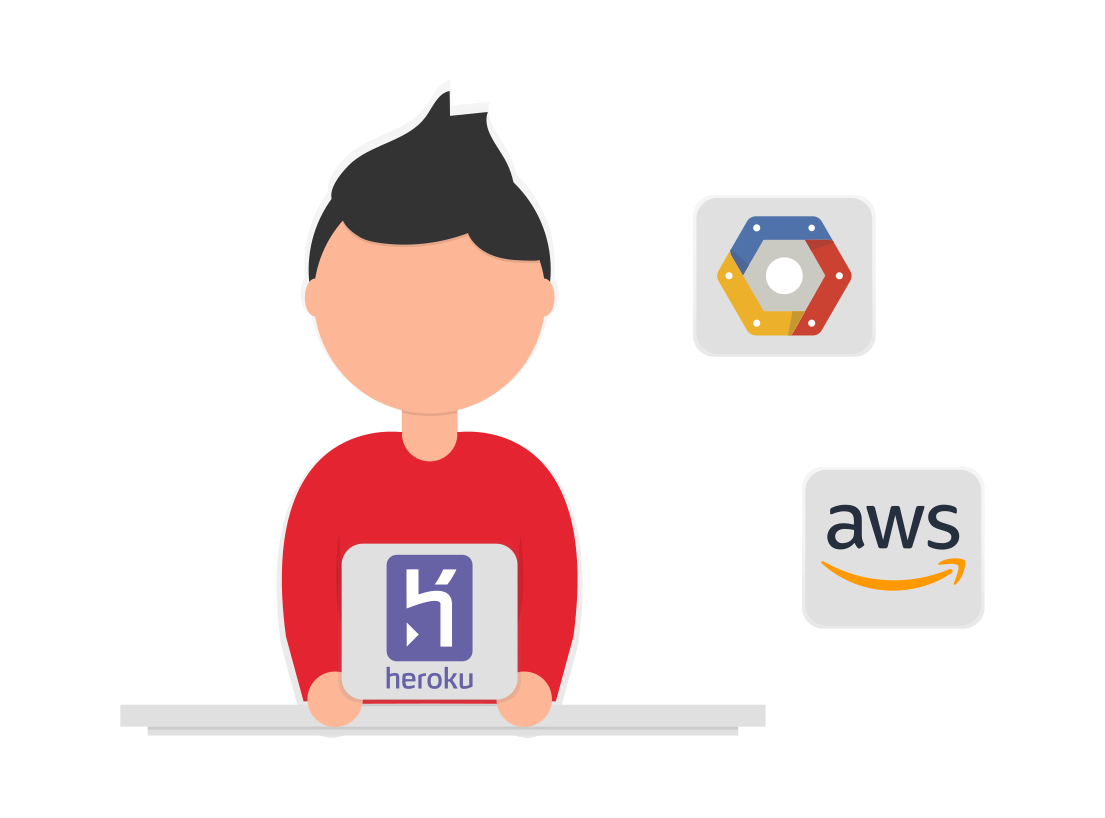

Mobile app development is all about conducting thorough research on the market and studying other apps of the same niche to create a successful mobile app. According to our expert app builder, most work lies in planning and researching. If these two steps are done right, the rest will flow smoothly, producing a successful app.
However, strategy creation and comprehensive planning involve evaluating the current environment in the digital market. If you dedicate your best efforts to polishing your idea and hiring the right app developer, your product is meant to succeed. Let us find out more below!
Mobile app development is the process of creating software for mobile devices. The most common mobile application development platforms are Android from Google and iOS from Apple. Also, the developed app is optimized to make its unique features stand out to potential users.

Organizations and companies develop custom mobile apps to conduct their business. From retail to healthcare, insurance, telecommunication, etc., organizations from all industries undertake iOS or Android app development to provide their users with easy transactions and accessible information.
Customers and employees find a dedicated mobile app relevant and responsive for real-time interaction and customer service.
With a headset, users can move freely in a virtual environment. Trainees can observe and walk around objects placed in the environment just like they would if those objects were real.
Here is a guide to how to develop an app, narrating all the steps you need to take.
Before taking a single step, you have to brainstorm your app ideas. Clear your mind on the purpose of the app you want to develop. Your app should be top-notch, unique, and valuable. If you want it to stand out from others on Google Play Store and Apple App Store, it should have something special that no other app has.

Once you know what you want to create, brainstorm the design of your app and app model. Most importantly, know your target audience, and explore their interest and liking. The more you plan in the first stage, the easier it will be for you in the coming stages.
This is the stage to decide if you want to hire professional help like an app developer. If yes, what experts do you need? One great mistake you can commit here is to believe that you can do it all on your own. If you want to leave not a single loophole in your mobile app, you need to hire an app builder, designer, and marketer.
Instead of hiring single freelancing individuals, contacting app development companies can be good. Make sure to find out about their credibility, the success rate of their clients, and their portfolio online. One excellent option at your disposal is the Broduction. It's because they have years of experience in mobile app development.
Now that you have an idea and a team, it is time to decide on the final plan. You have to extend your strategy deeper and broader at this stage. Decide on the features and functions your mobile app will include.

Some people skip this step and move directly to instructing their team on what to do. This is a huge mistake because your hired mobile app development companies can help you improve your idea and bless it with their expertise. The Broduction team will polish your idea till it cannot get any better
Doing step 3 will give you valuable and in-depth findings. Now you have to develop a roadmap for the mobile app you want to build. First, double-check your findings by conducting more research. Dig deeper into the customer problem you are trying to solve. You can also conduct surveys online to know your target audience more closely.
Other factors that should be included in the roadmap are the app development platform, design, user interface, marketing strategy, etc. While designing a roadmap, keep in mind that this will guide you when you are lost amidst the app development process.
Application development platforms give developers a single environment that has all of the tools developers need to create software applications. This decision will decide a good chunk of your budget. Do you need both an Android and iOS app from the start? Maybe a web-based solution with less of a native experience would be just as fine?
You must choose the platform at first, so you don't waste time or select the wrong software development company because of that.
The design of your app is one of the most important factors. What colors would you use, what themes and patterns, everything makes a good deal of impression on users' minds? Mobile apps that focus on user experience (UX) and user interface (UI) always succeed. Therefore, the mobile app development companies focus the most on this step.

Now it is time to improve your app to make sure that it is the best version of itself. Let us find out how you can do it!
For this step of creating a prototype, you should think about an idea for your app and then make a rough presentation of it. Now, share with your mentors, investors, and stakeholders. Ask for their feedback on the ease of navigation, user interface, performance, and functionality of your product.

After taking feedback from your stakeholders, and making necessary improvements to your app, go for beta testing. It is a process where you make real users of your app use the app and spot any issues or bugs. After you have improved your app as per users' feedback, it is time to deploy and publish it. Make sure that you give your users a medium to upload their reviews and feedback.
Whether you are developing PWA (Progressive Web Apps) or custom mobile applications, your chosen platform depends on your budget, development time, complexity, UI/UX, etc. The PWAs offer an enhanced user experience than the native apps by using the web platform features. Let us compare different platforms below!
If you choose native mobile app development, you can create a high-performance product, but your budget should be high. Cross platform mobile application development can save you around 30% on financial expenses. Moreover, UI/UX comes out to be more pleasing and easier to navigate with natives. People usually let the mobile app development companies like Broduction decide.

Custom mobile applications that are all about information and data should be developed natively. In comparison, the one involving heavy processing should be the cross platform mobile application.
Native iOS application development (Objective-C, Swift) could come with additional development time and budget compared to Android development. Also getting accepted through App Store could be a little bit more challenging.
Android development (Java, Kotlin) could be a smoother experience regarding the time and budget, but the created application might not be as pixel closed to the design as the iOS counterpart. The main reason behind that is Apple has finite mobile devices to select from.
As mentioned the Android development could be a little less expensive but the main deciding factor should be based on market research. The most important is to always try to create your typical user/persona and start from there.
Cross platform mobile application development comes with many benefits and perks. Both Google Play Store and Apple App Store have 4.4 billion mobile apps. The state clearly shows the potential of targeting both platforms: high savings, scalability, and better integration.
Many frameworks are available for cross platform mobile application development, such as React Native, Flutter, Xamarin, Unity, Ionic, etc.
Mobile app development extends beyond writing code. If your mobile app is as simple as a calculator, users' devices will hold the backend. However, the app developer hosts the app for complex mobile apps, meaning that the app is on something somewhere. As a result, every time you make a request, the action is executed from the backend.

The app hosting carries and operates the backend on either servers or the cloud. App hosting is as important as the app since it responds to user requests and executes actions.
Your work is not done after publishing the app. Mobile app development companies like Broduction strongly believe in conducting maintenance every once in a while.
For app maintenance, you can add new features, fix bugs, improve user interface, monitor performance, and make navigation even easier than before. This will help you maintain your app and maintain or improve your position in the market.
If you have a brilliant idea about an app much-needed in an industry, you should not question how to develop an app. Instead, your concern should be to find out about the best mobile app developer companies. Because hiring professional help is an influential decision you can make in your mobile application development process.
One of the best app builder you can find in the market today is Broduction. It is a company that has helped several ideas become a reality and has a startup background. They can bring about magic in mobile app development, from planning to refining your product.

Broduction
Do you have an exciting VR simulation project in mind? We are transforming ideas into products since 2016 at Broduction. Contact us if you have any questions or want to create a vr training!
Let's talk